The Prophet of Islam
MUHAMMAD صلى الله عليه وسلم PEACE BE UPON HIM
"And We have not sent you but as a mercy to the worlds" QURAN, 21:107 (THE PROPHETS)
DOWNLOAD THE BOOK



History has recorded Muhammad’s sublime and humane dealing with people. His call and teachings were based on amicability and fraternity. Adversity had no place in his conduct.
Read More +Muslims have no drawings or pictures for prophet Muhammad or the prophets before him. However, unlike the founders of the great faith traditions prior to his time, the Prophet Muhammad is much more a recognizable historical figure as his companions and family members described him very well and recorded many stories from his life for posterity.
Read More +History has recorded Muhammad’s sublime and humane dealing with people. His call and teachings were based on amicability and fraternity. Adversity had no place in his conduct.
Read More +Muhammad proclaimed himself as a Messenger of God. He received a Divine Message to humanity and struggled to convey it to all people but he did not force anyone to accept it.
Read More +The bowing tree was found in a camping site in Nowra, South of Sydney, Australia. It resembles bowing to God in the Muslims' prayers. The lower edge of the tree looks like the head of a bowing person.
Read More +History has recorded fine details of Muhammad’s life as well as his sublime and humane dealing with people.
Read More +
"And We have not sent you but as a mercy to the worlds" QURAN, 21:107 (THE PROPHETS)
DOWNLOAD THE BOOK
"My similitude in comparison with other prophets before me, is that of a man who built and completed a house except for one missing brick. When people see the house, they admire its beauty and say: How splendid the house will be if the missing brick is put in its place! So I am that brick, and I am the last of the Prophets."
(Narrated by Bukhari 4.734, 4.735)
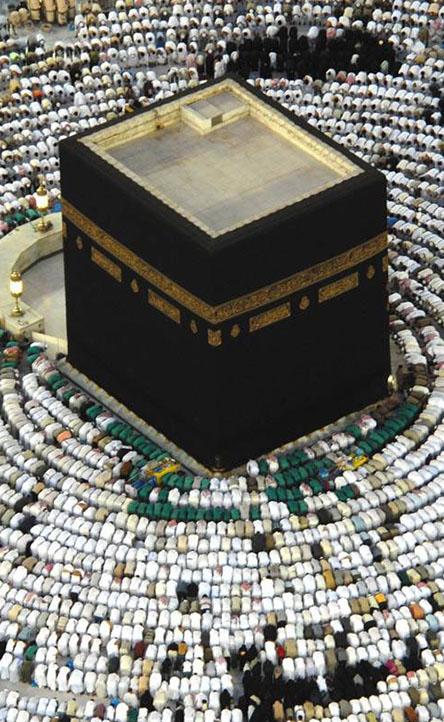
Biography
His name is Muhammad son of Abdullah son of Abdul-Muttalib (ancestry reaches back to the Prophet Ishmael son of Prophet Abraham).
He was from Bani-Hashim family (Bani-Hashim was from Quraysh, a tribe that was highly ranked in Arabia), Born in Mecca (Makkah) – Arabian Peninsula (currently in Saudi Arabia) on 20th - 22nd April, 570 CE 1 Approximately.
Muhammad Died in Madinah (about 400 km north of Makkah) on 6th June, 632 CE. (Approximately, he was 63 years old when he passed away)
His character
Muhammad was an Arab of noble lineage with a white complexion and a rosy tinge. He was a little taller than average and well built with broad shoulders. His belly never protruded out from his chest. He walked briskly and frmly. Muhammad’s companions described him as a handsome person with prominent forehead, high tipped nose, long eyelashes, large black eyes with well set teeth and a pleasant smil...
His character
Muhammad was unfailingly cheerful, easy going by nature, and mild mannered. He never resorted to offensive speech or obscenities. He did not find fault with others nor did he overly praise the others.
His character
Muhammad did not speak unnecessarily and what he said was always to the point and without any padding. His sayings were precise and concise having complete meaning in few words. He spoke with excellence, and there was no excess in it and no abnormal brevity.
When he emphasized a point, he used to repeat it three times with a gesture. He spoke of nothing unless he hoped a reward from God for it. H...
His character
Muhammad kept his feelings under firm control. When annoyed, he would turn aside or keep silent. When someone committed an act that violates God’s law, he used to show serious anger and a firm stand. No one would stand against his anger in matters of the Lord’s truth being opposed, he would stand fast in protecting the truth as revealed in the Quran. Muhammad never got angry for his own sake.
His character
Muhammad was always the first to greet others and would not withdraw his hand from a hand shake until the other man withdrew his.
Whoever saw him unexpectedly would admire and revere him. And whoever socialized or associated with him familiarly, loved him. He was gentle by nature. He was neither coarse nor disdainful of anyone.
When he looked at the others, he looked at them in full face. If som...
His character
Everything he did was in moderation, without excess or contrariness. He never criticized the food or drink that was prepared for him, nor did he overly praise it.
When at home, he would divide his time into three parts: One for God, one for his family, and one for himself. He always joined in household work and would at times mend his clothes, repair his shoes and sweep the floor. He used to dre...
 "You Are Of Great Moral Character"
The Quran, 68:4
"You Are Of Great Moral Character"
The Quran, 68:4

The Islamic Civilization
Muhammad didn’t know that he would be a Prophet: He Muhammad called for maintaining the right balance between materialism and spiritualism. He taught his followers that the needs of body and soul must be satisfied but in the right balance and in lawful ways.
He encouraged people to take religion as a motivator for a better way of life which adds value to their bodies and souls.
His sayings
Muhammad’s sayings and teachings are highly influential as they cover most aspects of life: spirituality, morals, social matters, commerce, and more. His sayings emanate from a base of wisdom and divine revelation.

"Whoever believes in Allah and the Day of Judgment should say good (words) or keep silent and whoever believes in Allah and the Day of Judgment must honor (be generous with) his neighbor and whoever believes in Allah and the Day of Judgment must honor (be generous with) his guest."
(Bukhari, 6018 & Muslim 74-47)"A strong person is not the one who throws his adversaries to the ground. A strong person is he who contains himself when he is angry."
(Narrated by Bukhari, Muslim & Ahmad)"Goodness (rightness) is good morality; and sin (misdeed) is what embarrasses you (i.e. you are not comfortable within yourself) and you hate it to be known by others."
(Muslim, 15/2553)"Fear Allah wherever you are, follow a bad deed with a good deed as it erases it, and deal with people with high ethics."
(Tirmithi - 1987 & Ahmad 5/153)"When a man dies, he gains no rewards except from three things; in case he had dedicated a charity that people can continuously profit from, or he had left knowledge or a science that benefits the humanity, or if he had left a good (faithful) son who keeps on praying and asking God's blessings and forgiveness for his parents." (This is applicable to both males and females)
(Narrated by Muslim, Tirmithi, Nassa’i)Every muslim må betale zadaqha (almisse). Hvis han ikke har noe å betale med, så la han få arbeide for å kunne betale. Kan han ikke finne arbeid, la han hjelpe andre (som en velgjerning). Hvis han ikke finner noen å hjelpe, la ham gjøre gode gjerninger og ikke gjøre dårlige handlinger
(Bukhari, 1445/30)"You will not be a believer in God unless you like for your brethren what you like for yourself."
(Bukhari, 13/7)"Those who do honest trading and business based on clear terms, God blesses them and their business (trade). On the contrary, God does not bless those who lie and hide facts."
(Bukhari, 2082/22)"Make things easy to people (concerning religious matters), and do not make it hard for them; give them good tidings and do not make them run away."
(Bukhari, 69/11)"Two graces, many people underestimate; health and free (leisure) time."
(Narrated by Bukhari, Tirmithi)"The perfect believers are those who have the best manners."
(Narrated by Tirmithi)The Miracle
Many scholars believe that Muhammad’s mission to convey God’s Message and bring people to monotheism was harder than the mission of many messengers and prophets before him. The main miracle he brought was the Quran, which was a book recited in original Arabic as a divine revelation from God.
"Will they not ponder on the Quran? If it had been from other than Allah they would have found therein much incongruity (inconsistency)." The Quran, 4:82
Testimonials
History has recorded Muhammad’s sublime and humane dealing with people. His call and teachings were based on amicability and fraternity. Adversity had no place in his conduct.
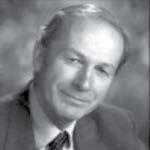
“Leadership glimpsed more than once in the life of the Prophet Muhammad accords well with what we know to be the universal truth about the nature and practice of leadership. You will judge for yourself how close Muhammad comes to this ideal.”
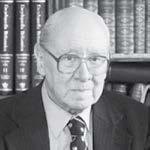
“His readiness to undergo persecutions for his beliefs, the high moral character of the men who believed in him and looked up to him as a leader, and the greatness of his ultimate achievement - all argue his fundamental integrity. None of the great fgures of history is so poorly appreciated in the West as Muhammad....
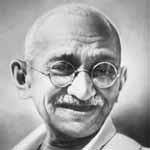
“I wanted to know the best one who holds today undisputed sway (controlling influence) over the hearts of millions of mankind. I became more than convinced that it was not the sword that won a place for Islam in those days in the scheme of life. It was the rigid simplicity, the utter self-effacement (humbleness) of P...
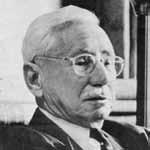
His name, meaning, “highly praised,” lent itself well to certain Biblical passages as predicting his advent. Muhammad was never known to write anything himself. His apparent illiteracy did not prevent him from reciting the Quran which is the most famous and eloquent book in the Arabic tongue.

“Philosopher, orator, apostle, legislator, warrior, conqueror of ideas, restorer of rational dogmas, of a cult without images; That is Muhammad. As regards all standards by which human greatness may be measured, we may well ask, is there any man greater than him?.
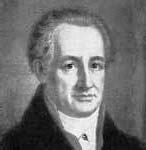
He is a prophet and not a poet and therefore his Quran is to be seen as Divine Law and not as a book of a human being made for education or entertainment.